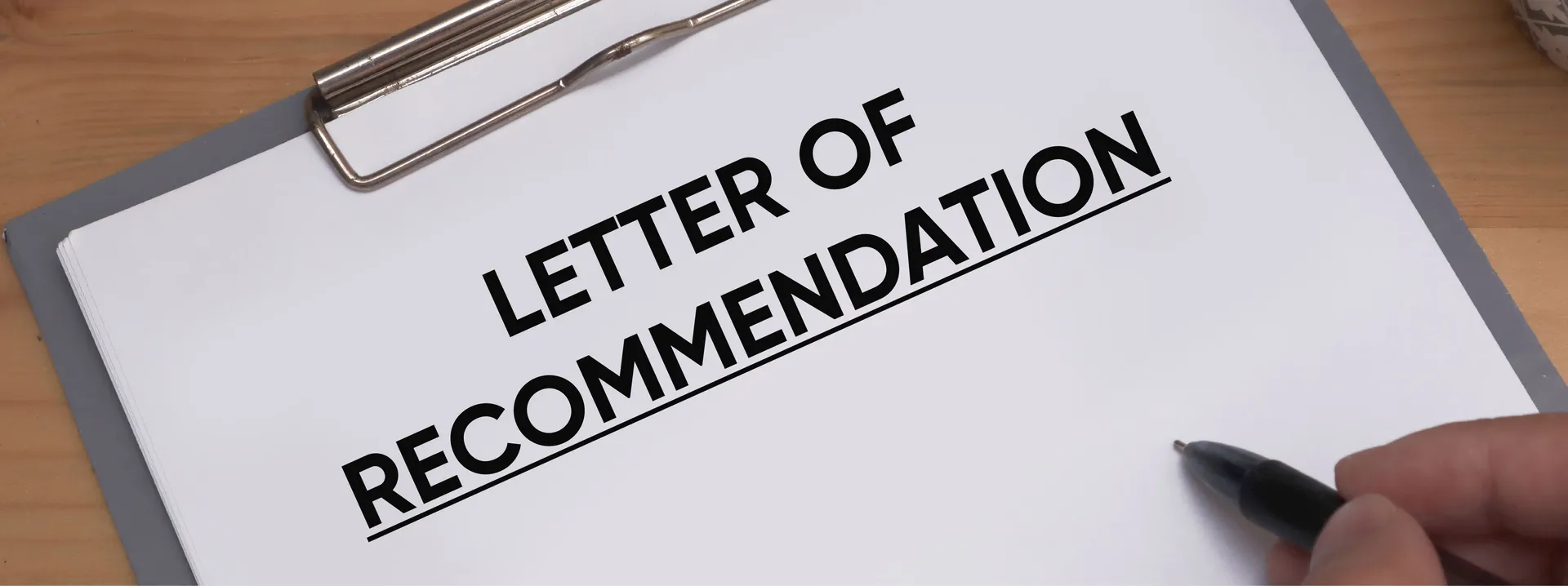LORs Demystified: How to Get the Ideal Letter of Recommendation


With the highly competitive scenario of college admissions, internships, scholarships, and job placements, there is one vital piece of paper that sometimes does not receive as much emphasis as your resume or personal statement—the Letter of Recommendation (LOR). A great LOR can make your application shine, bring your accomplishments to life, and impart that third-party endorsement that you are more than your grades or scores.
But how do you obtain that ideal recommendation letter? And what exactly is a good one, anyway? Let’s demystify the whole process.
What Is a Letter of Recommendation?
A Letter of Recommendation is a formal letter from someone who can attest to your qualifications, character, and potential—most often a teacher, professor, employer, or mentor. It’s intended to provide information about you from someone who has observed you in action, preferably in an academic or professional environment.
For graduate school, LORs inform admissions committees about your intellectual strengths and weaknesses, work habits, team skills, and general preparedness for the program. For careers or internships, LORs supplement your application by noting actual work experience and development.
Why Are LORs Important?
Consider two candidates with similar grades, scores, and activities. One gets a dull, generic letter. The other’s letter is personal, energetic, and full of anecdotes. Guess who gets hired?
Powerful LORs provide:
- Background to your success: They illustrate how you succeeded.
- Insight into personality and behavior: Things that grades cannot express.
- Credibility: From well-respected professionals, they carry more weight on your profile.
- Differentiation: They make you stand out from a sea of resumes.
Who Should You Approach?
The selection of a recommender is very important. It’s not a matter of selecting the most esteemed name but one who knows you best.
Here’s who to choose:
- Teachers or Professors: Preferably those who taught you in core or related subjects.
- Supervisors or Managers: For internships, employment, or research positions.
- Mentors or Project Leads: Particularly if you’ve collaborated on significant projects together.
Look For:
- Someone who can write with passion about your abilities.
- Someone who has witnessed your development or dedication first-hand.
- Someone who is dependable and will likely submit on time.
Pro tip: Don’t choose family or friends—they’re not objective, and most institutions don’t accept such LORs.
When Should You Ask?
Get an early start. Ideally:
- 3 to 6 months beforehand if at all possible.
- Provide at least 4 weeks’ notice.
Early inquiries demonstrate maturity and provide your recommender sufficient time to write a well-thought-out letter rather than doing it in haste.
How to Ask for a LOR (and Get a Great One)
- Ask Politely and Personally
Whether in an email or in-person solicitation, be polite and direct:
“I thoroughly enjoyed learning in your class and feel confident you observed my commitment personally. I’m pursuing [Program/School] and would be grateful if you would write me a letter of recommendation.”
- Offer a LOR Packet
Make it easy for them. Include:
- Your resume/CV
- Statement of purpose or motivation letter
- List of achievements or highlights during your time with them
- Information about the program and what it emphasizes
- Deadline and directions for submission
- Share Specific Talking Points
Assist them in writing specifically by providing examples of:
- Projects you directed
- Challenges you overcame
- Contributions to class or team discussions
- Grade or behavior improvements
- Follow Up—Gently
Follow up a week or so prior to the deadline with a friendly reminder. Life is busy, even for professors.
What Makes a LOR "Perfect"?
Not every recommendation letter is the same. The best ones are:
- Personalized: Does not use generic compliments; rather, uses examples and stories.
- Focused: Speaks about specific traits for the program or position.
- Insightful: Provides insight into your character, not merely what you did.
- Well-Structured: Introduction → context of relationship → specific praise → summary endorsement.
A Quick Comparison:
Weak LOR Example:
“I would like to recommend Riya for your Master’s program. She was a student of mine and used to submit her assignments punctually. She is a good student and will perform well.”
Strong LOR Example:
“I had Riya in Advanced Biochemistry, where she impressed not only by scoring in the top 5% but by asking insightful questions that challenged even my own assumptions. Her enzyme kinetics project was innovative and scored full marks. Her work ethic, curiosity, and leadership skills in group discussions make her a great fit for your Master’s program.”
See the difference? The second letter shows rather than tells.
Common Errors to Steer Clear Of
- The Wrong Individual
A person with a large title but no actual relationship with you will do no good. A sincere letter from your lab professor means more than a general one from the Dean.
- Requests at the Last Minute
Hasty letters tend to turn out generic or unbelievable.
- Over-Requesting Recommenders
If you are sending out applications to 10 different locations, do not overwhelm the same individual with all ten unless they have agreed ahead of time.
- Not Providing Enough Context
Recommenders are not mind readers. If you don’t remind them of your achievements and work, their letter will be superficial.
How Many LORs Do You Need?
It varies with the institution or opportunity:
- Undergrad/Grad programs: Typically, 2–3 academic LORs.
- Jobs/Internships: 1–2 professional LORs.
- Scholarships: Often 1 academic and 1 community-based.
Always verify the specific requirements of the institution.
Digital vs. Printed LORs
Most universities employ online portals where recommenders upload the letters themselves. This is to maintain confidentiality and authenticity. Some institutions might still request sealed printed letters, particularly in conventional or governmental arrangements.
Can You Write Your Own LOR?
Some recommenders might request that you write it yourself for convenience. Though tempting, don’t simply write a glowing eulogy about yourself. Instead:
- Be humble and truthful.
- Emphasize actual achievements.
- Write it in the voice of the recommender, not yours.
- Ask them to make some minor adjustments to incorporate their point of view.
What to Do After You Receive Your LORs
- Say Thank You
A polite note or genuine email makes a big difference. Maintain the rapport.
- Update Them
Inform your recommender if you were accepted into the program or got the job. They’ll like seeing the fruit of their effort.
- Keep in Touch
You may need another letter in the future. Maintaining relationships ensures you won’t be a stranger the next time.
The ideal Letter of Recommendation is not about perfection—it’s about authenticity. It’s a reflection of you, how others see you, and why you’re prepared for the next. By taking the process with care, respect, and preparation, you’re not merely requesting a Favor—you’re constructing a professional bridge that can take you very far.
Take your time, do it properly, and let your strengths speak through the voices of those who believe in you.
Having trouble writing a LOR request email or creating a LOR brief? Aara Consultancy is here to help!
We provide 360° Solution for your Education Needs. Contact us






